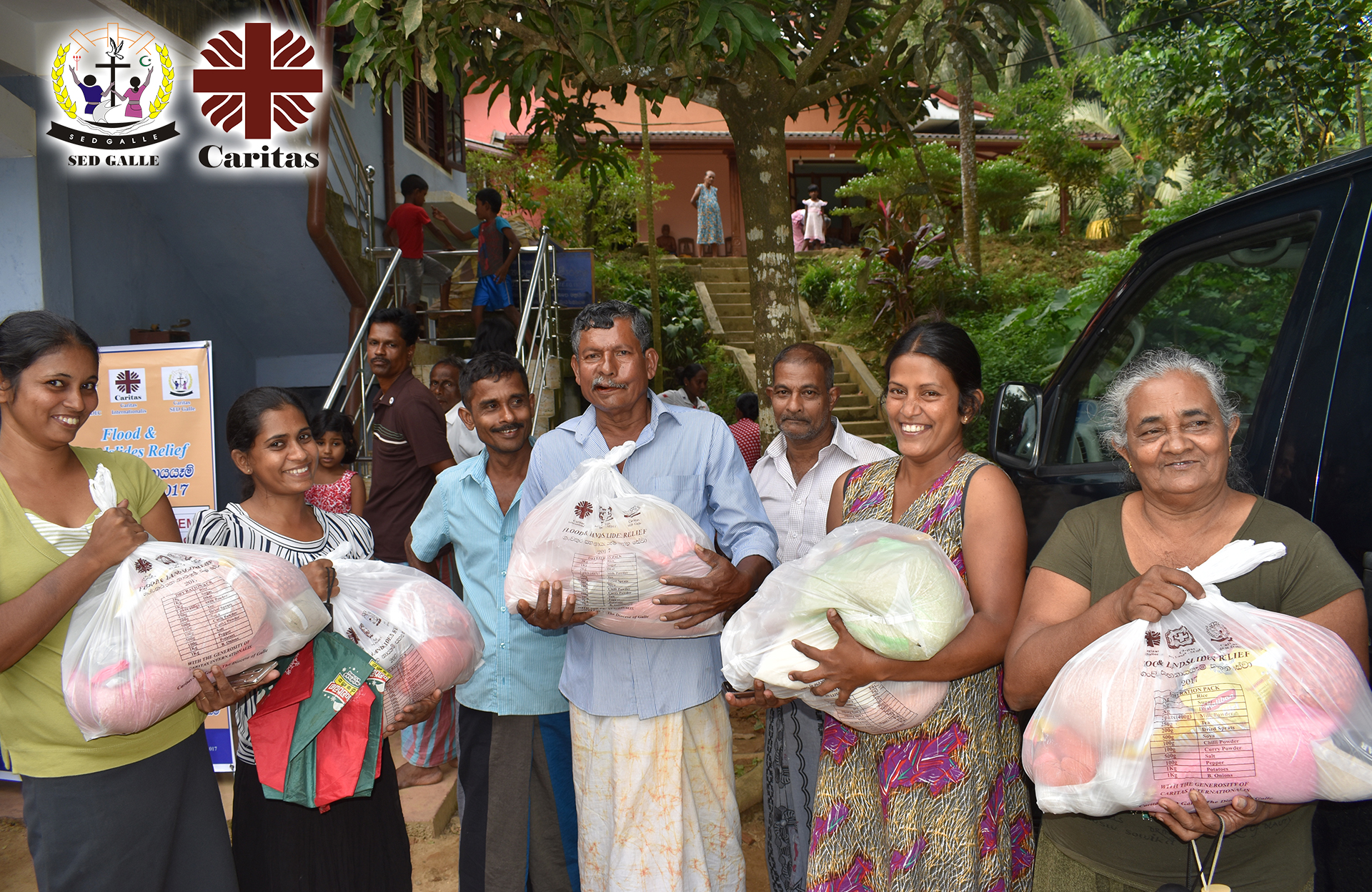
It is a sustainable approach to improving the livelihoods of poor, excluded, and deprived people, and improving local environments. An important characteristic of the livelihood improvement approach is its way of solving issues not by introducing foreign systems and technologies, but by skillfully using the limited resources available to improve people's lives. Livelihoods programming fully involves the people whose livelihoods are affected. A livelihood approach identifies programmes based on the priorities and goals defined by people themselves and supports their own livelihoods strategies.
This Project “The Sustainable Livelihood Approach to Improve Livelihoods of selected Poor Parish
Families in the Diocese of Galle ” aims to promote, facilitate and strengthen the living standards of target families by capacitating and guiding. The project funded by Mr Gerard Chitty of Irasil Foundation
of Australia would allow Caritas SED Galle to start livestock rearing (Poultry Farming) units for selected poor Parish families.
The overall goal of the program is that the selected families will have improved sustainable levels of livelihood at parish levels. Caritas SED Galle addressed immediate needs and underlying causes of poverty in selected families through this project.
Specific project objectives are:
Poultry farming is a highly thriving and profitable business. Supply of eggs is also a major source of revenue generation from poultry farming. Players in the poultry farming and egg production basically raise chicks for meat and egg production. The selected beneficiaries were motivated to start small scale poultry farming. As there is a great demand for supply of eggs and chicken meat in the local market, it is estimated that if you rear 25 country chicks, you can get an income of Rs 600 per day and earn a profit of Rs 25,000 or more on monthly basis.
Under this Project, 30 poor Parish families were selected by Parish Priests of 06 Parishes (Hambantota, Tangalle, Matara, Weligama, Halpatota and Udugama). Each beneficiary was given 25 chicks (layer type), chick feeds and water/food containers.
Once the project is complete, we expected that the targeted households will be stronger economically, less vulnerability, and less dependent on external aid. Under this Project , Caritas SED Galle provided the capital and the required training and technology to start a family based poultry. It will provide a realistic income source, improve their standards of living, reduce poverty, malnutrition and also contribute to national economy.